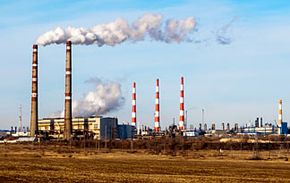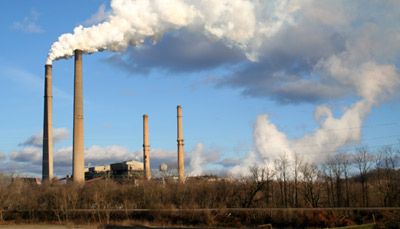The burning of fossil fuels -- like coal, oil and natural gas -- releases gases into the air, mainly carbon dioxide, sulfur dioxide, methane and nitrous oxide. These also exist naturally in the Earth’s atmosphere to help hold in heat; however, scientists believe burning fossil fuels is causing an increase in these gases, which is leading to global warming and other detrimental environmental effects.
While combustion of natural gas does produce carbon dioxide, it produces about 30 percent less than oil and 45 percent less than coal, and natural gas doesn't produce ash particles like coal and oil do, which adds to air pollution. Though it doesn’t have as much of an effect on global warming per unit compared to other greenhouse gases, it is by far the most abundant greenhouse gas in our atmosphere -- and reducing carbon dioxide emissions has been the focus of curbing the greenhouse effect.

